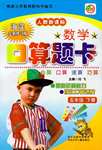题目内容
Giving the firemen time to reach me ________ important, ________ I tried soaking(浸湿) my jacket with water.
- A.were; so
- B.was; so
- C.was; but
- D.were; for

 口算题卡河北少年儿童出版社系列答案
口算题卡河北少年儿童出版社系列答案 A加金题 系列答案
A加金题 系列答案 全优测试卷系列答案
全优测试卷系列答案It was a party. I was 18 and it was fresher(大一新生) week. I was at the beginning of a course in English Literature and full of enthusiasm for my subject. She was also 18 and enrolled in a course in physics.
“Your major is of no use to society. What will you do with it when you graduate, other than teach? Plus, you’re going to be poor your whole life,” she said. “You have no soul and your degree is boring. I don’t care how much money you’re going to earn. I’d rather be poor and don’t mind being a teacher. If I love my work I’ll have something far more meaningful than a big bank account!” came the reply.
And so it went, back and forth, neither of us giving the other an inch, each of us stubbornly committed to our prejudice. We were both ignorant, but our ignorance was also society’s ignorance. It had always been that way. Scientists mocked(嘲笑) humanists; humanists laughed at scientists. Back in the 1960s, the physicist-turned novelist C. P. Snow labeled the sciences-humanities divide “a problem of ‘the two cultures’” . He said it was bad for society. The modern world needed well-rounded people.
I think I know better now, but it would have helped if we had been encouraged to think a little more outside our science and arts “boxes”.
That’s why I believe it is healthy that China is beginning a debate on whether it’s wise for young people to have to choose which direction their careers – and lives – will take at such an early age. At the moment, in their second year of high school, students must choose either the sciences or the humanities. After making the choice, they focus their energies on passing the appropriate college entrance exam.
But now, people in China are asking: Is this forced, early decision good for young people or society? Young people need time to explore, to discover where their real talents and interests lie. There are more than just a few middle-aged people out there, stuck in jobs they hate because they made the wrong choice at the wrong time.
And from the point of view of society, isn’t it better for students to delay a while before they decide what to study? Scientists can benefit from learning to develop the critical skills associated with the humanities; students in the humanities, surely, only stand to gain by finding out a little more about science and technology, which are so important to the future of a developing country like China.
With any luck, in the future young people fresh to college will be better informed about the possibilities of education than people of my generation.
【小题1】The author describes what happened at a fresher party to ________.
| A.show that he was ready to defend the subject he enjoyed |
| B.lead up his argument that the sciences-humanities divide is harmful |
| C.prove that doing something meaningful is better than having a lot of money |
| D.describe how fierce students of different majors can be when arguing with each other |
A. Indifferent. B. Unce
 rtain. C. Positive. D. Negative.
rtain. C. Positive. D. Negative.【小题3】In the sixth paragraph, an example mentioning middle-aged people is used to show that ________.
| A.students should not make decisions too early |
| B.not all people have a talent for or are interested in the sciences |
| C.these people did not have the chance to make a choice earlier in life |
| D.the earlier young people make a decision, the better it will be for them |
A. sciences are more practical in the modern world
B. C. P. Snow was a novelist who became a physicist
C. future generations will be able to get more out of education
D. a command of both th
 e sciences and humanities is important to society
e sciences and humanities is important to society【小题5】What’s the best ti
 tle for the article?
tle for the article?| A.The sciences or the humanities, which to choose? |
| B.High school education in China |
| C.Isn’t it better to delay the choice of the career direction? |
| D.A better time to decide what to study |